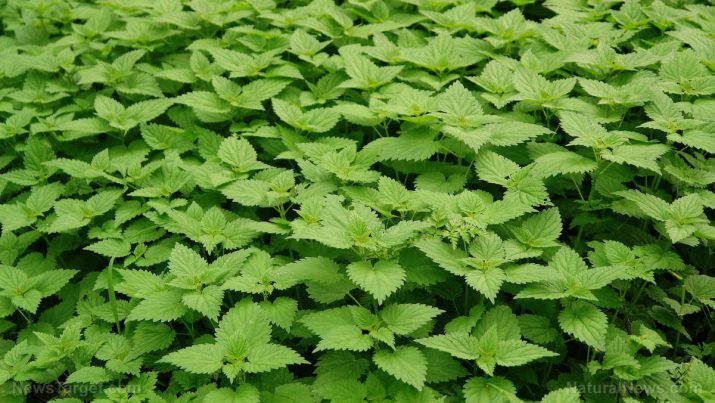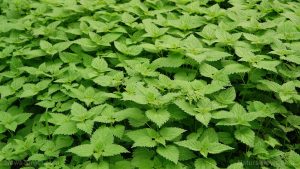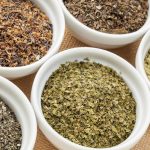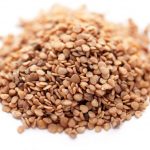
Stinging Nettle – sources, health benefits, nutrients, uses and constituents at NaturalPedia.com
Thursday, July 20, 2017 by Frances Bloomfield
http://www.naturalnewsherbs.com/2017-07-20-stinging-nettle-sources-health-benefits-nutrients-uses-and-constituents-at-naturalpedia-com.html

Stinging nettle (Urtica dioica) is an herbaceous flowering plant native to North America, Asia, Europe, and Africa. While also known as “common nettle”, the name “stinging nettle” refers to the irritation caused by the fine, stinging hairs on this plant; or rather, by the array of chemicals found in the hairs. Though considered a nuisance weed by many people and gardeners, stinging nettle is dense with a variety of powerful oils and nutrients that have made it popular as an herbal remedy.

List of known nutrients
Stinging nettle has a diverse range of nutrients, which include but aren’t limited to:
- Calcium
- Carotenes
- Chlorophyll
- Copper
- Fiber
- Folic acid
- Iron
- Magnesium
- Manganese
- Phosphorus
- Potassium
- Selenium
- Vitamin A
- Vitamin B2 (Riboflavin)
- Vitamin B6 (Pyridoxine)
- Vitamin K
The most abundant nutrient in stinging nettle is vitamin K: a one-cup serving contains upwards of 493 percent of the recommended daily intake.
Stinging nettle is a good source of calcium, vitamin A, and manganese as well.
Medicinal uses for stinging nettle
Stinging nettle has been used to treat all kinds of ailments, namely:
- Anemia
- Arthritis
- Asthma
- Cancer
- Eczema
- Enlarged prostate
- Gallbladder stones
- Gout
- Hay fever
- Kidney stones
- Osteoporosis
- Seasonal allergies
- Urinary tract infections (UTI)
People suffering from an enlarged prostate can find relief in stinging nettle. Not only does this plant prevent prostate growth, it can also reverse the growth thanks to its content of bioactive phytochemicals. Moreover, stinging nettle is a natural diuretic so it can encourage inflammatory waste elimination by way of urination.
Stinging nettle has an anti-inflammatory effect that, when combined with minerals like calcium, potassium, and magnesium, can ease the pains of arthritis while also strengthening the bones and joints.
Extract combinations derived from stinging nettle has been shown to reduce allergic reactions in patients suffering from respiratory issues. As such, stinging nettle has been touted as a remedy for asthma and hay fever.
Body systems supported by stinging nettle
Stinging nettle can be good for:
- Cardiovascular system
- Digestive system
- Gallbladder
- Kidneys
- Respiratory system
- Skeletal system
- Skin
In addition to its diuretic qualities, stinging nettle has nephridic properties as well. This means that stinging nettle can break down kidney and gallbladder stones and allow them to pass through the body without any problems.
One notable benefit of stinging nettle is its positive impact on the skeletal system: the calcium content of this plant is such that it maintain bone structure, promote bone density, and prevent osteoporosis.
Ways to use stinging nettle
One of the most common ways to take stinging nettle is as a tea. However, stinging nettle can be added to foods as well, especially in cheeses. Apart from this, stinging nettle does well in pastas, soups, pizzas, and even rice meals.
Stinging nettle can be used as an oil extract too, however, it can be extremely potent and should be diluted with natural oils.
Note: though helpful, stinging nettle has some adverse health effects that include raising blood sugar and interfering with blood thinners and heart medication.
Where to learn more
- Sipping on Nettle Tea for Better Health – 28 Stinging Nettle Benefits
- Stinging Nettle is effective in treating BPH, arthritis, and aids post-partum mothers
- Stinging Nettles: So Many Cures that You Will Lose Count
- Stinging nettle promotes a wide range of health benefits
Summary
Stinging nettle is a common weed with a surprising range of health benefits and effects. From acting as an anti-inflammatory agent to serving as a diuretic, stinging nettle is a reliable herbal remedy. However, stinging nettle is not recommended for those who are taking blood thinners or heart medication.
Sources include:
NutritionValue.org
Livestrong.com
Top10HomeRemedies.com
HerbWisdom.com
OrganicFacts.net
TheSpruce.com
Tagged Under: Tags: Stinging Nettle





